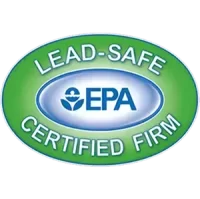Understanding Water Heater Replacement Needs in Wheaton
Water heaters are essential components of every Wheaton home, providing the hot water necessary for daily activities from morning showers to evening dishwashing. When these critical systems begin showing signs of failure, understanding the replacement process becomes crucial for maintaining comfort and avoiding unexpected disruptions. The typical water heater in Wheaton homes operates under challenging conditions, dealing with the area’s hard water composition that contains elevated levels of calcium and magnesium minerals. These minerals accelerate sediment buildup inside tank water heaters, reducing efficiency and shortening equipment lifespan compared to regions with softer water supplies.
At Energy Services Air Conditioning and Heating Company, we’re proud to provide the best in HVAC and indoor air quality services to residential customers throughout Chicago and the surrounding communities. Our experience serving Wheaton residents has shown that most conventional tank water heaters require replacement between eight and twelve years of service, though this timeline varies significantly based on water quality, usage patterns, and maintenance history. Tankless models generally last longer, often reaching twenty years or more with proper care, making them increasingly popular among homeowners seeking long-term value despite higher initial investment costs.
Signs Your Water Heater Requires Replacement
Recognizing early warning signs prevents complete system failure and the inconvenience of sudden cold water situations. Rust-colored water emerging from hot water taps indicates internal tank corrosion, particularly when the discoloration appears exclusively from hot water sources while cold water remains clear. This symptom suggests the tank’s protective anode rod has depleted, allowing corrosive elements to attack the steel tank walls directly. Once this process begins, replacement becomes inevitable as repairs cannot reverse structural deterioration.
Strange noises emanating from water heaters signal accumulated sediment hardening at the tank bottom. Popping, rumbling, or banging sounds occur when water becomes trapped beneath sediment layers, creating steam bubbles that burst violently. This phenomenon reduces heating efficiency by insulating water from heating elements, forcing systems to work harder and consume more energy. Additionally, inconsistent water temperatures, frequent pilot light failures in gas models, or visible moisture around the tank base all indicate replacement timing approaches. Whether you need to find the right HVAC system for a new home or want to have maintenance completed on your current system, you can count on us to assess these symptoms accurately and recommend appropriate solutions.
Water Heater Technology Options for Wheaton Homes
Modern water heater technology offers Wheaton homeowners multiple options tailored to specific household needs and efficiency goals. Traditional storage tank heaters remain popular due to lower upfront costs and simple operation. These units maintain forty to eighty gallons of heated water ready for immediate use, making them suitable for larger families with simultaneous hot water demands. Gas-fired models recover faster than electric versions, typically reheating depleted tanks within an hour versus several hours for comparable electric units.
Tankless water heaters, also called on-demand systems, heat water instantaneously as it flows through the unit, eliminating standby energy losses associated with maintaining stored hot water. These compact units mount on walls, freeing valuable floor space in mechanical rooms or basements. While initial costs exceed traditional tanks significantly, energy savings often justify the investment through reduced monthly utility bills. Heat pump water heaters represent another innovative option, extracting ambient heat from surrounding air to warm water efficiently. These systems achieve remarkable efficiency ratings, using sixty percent less energy than standard electric models, though they require adequate surrounding space and moderate ambient temperatures for optimal operation.
Professional Installation Process and Considerations
Professional water heater replacement involves numerous technical considerations beyond simply swapping old equipment for new. Proper sizing calculations ensure adequate hot water supply without oversizing that wastes energy. Our technicians evaluate household size, simultaneous usage patterns, fixture flow rates, and peak demand periods to recommend appropriate capacity. Undersized units struggle meeting demand during high-usage periods, while oversized systems cycle inefficiently, increasing operating costs unnecessarily.
Local Wheaton building codes mandate specific installation requirements including temperature and pressure relief valve discharge piping, expansion tank installation on closed systems, and proper venting for gas-fired units. Gas water heaters require adequate combustion air supply and properly sized venting systems to safely exhaust combustion byproducts outdoors. Electric models need dedicated circuits with appropriate amperage ratings and breaker sizes matching manufacturer specifications. Professional installation ensures compliance with these requirements while maximizing safety and efficiency. Our comprehensive installation process includes removing existing equipment, modifying piping or electrical connections as needed, installing new units according to manufacturer specifications, and thoroughly testing system operation before completion.
Cost Factors and Long-Term Value Considerations
Water heater replacement costs vary considerably based on selected technology, installation complexity, and necessary modifications to existing infrastructure. Basic tank replacements using similar technology and existing connections typically cost less than upgrading to different fuel sources or advanced technologies. Converting from electric to gas requires running new gas lines and installing proper venting, adding substantial costs beyond equipment prices. Similarly, tankless installations often necessitate larger gas lines or electrical service upgrades to accommodate higher instantaneous energy demands.
- Equipment costs: ranging from several hundred dollars for basic tanks to several thousand for high-efficiency tankless or heat pump models
- Installation labor: varying based on complexity and necessary modifications
- Permit fees: required by Wheaton building department for water heater replacements
- Disposal fees: for environmentally responsible removal of old equipment
- Optional upgrades: including water softeners or expansion tanks improving system longevity
Energy efficiency improvements often offset higher initial costs through reduced monthly operating expenses. Modern high-efficiency units featuring improved insulation, electronic ignition systems, and advanced heat exchangers consume substantially less energy than older models. Federal tax credits and local utility rebates may further reduce net costs for qualifying energy-efficient models, improving return on investment calculations.
Maintenance Requirements for Extended Equipment Life
Proper maintenance following water heater replacement significantly extends equipment life and maintains peak efficiency. Annual professional inspections identify developing issues before they escalate into costly failures. Routine maintenance tasks include checking and replacing anode rods that protect tank walls from corrosion, flushing sediment accumulation that reduces heating efficiency, testing temperature and pressure relief valves ensuring proper safety operation, and inspecting venting systems for blockages or deterioration in gas models.
Wheaton’s water characteristics make regular maintenance particularly important. Hard water accelerates mineral buildup, requiring more frequent flushing compared to areas with naturally soft water. Installing water softening systems dramatically reduces maintenance requirements and extends equipment life by preventing scale formation on heating elements and tank walls. Professional maintenance services ensure these tasks are performed correctly and safely, protecting your investment while maintaining manufacturer warranty coverage. Regular service appointments also provide opportunities to adjust temperature settings optimizing comfort and efficiency while preventing scalding risks, particularly important in households with young children or elderly residents requiring additional safety considerations.










